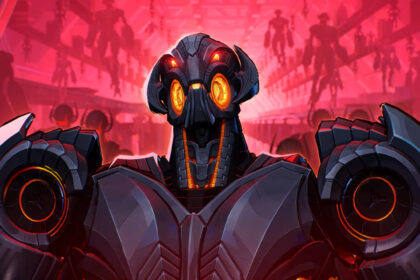A new type of computer simulation predicts that the Vera C. Rubin Observatory in Chile will discover millions of previously undetected objects in the solar system over the course of the coming decade.
The discovery campaign, which is due to begin in earnest later this year, should expand the known small-body populations in the solar system by a factor of four to nine, said University of Washington astronomer Mario Juric, a member of the research team behind the open-source Sorcha simulation software.
“With this data, we’ll be able to update the textbooks of solar system formation and vastly improve our ability to spot — and potentially deflect — the asteroids that could threaten Earth,” Juric said today in a news release.
Several studies describing the software and the predictions have been accepted for publication by The Astronomical Journal. The project was led by researchers from Queen’s University Belfast in collaboration with colleagues from UW, the Harvard & Smithsonian Center for Astrophysics and the University of Illinois at Urbana-Champaign. The software’s name is derived from the Gaelic word for “brightness.”
Sorcha starts with the Rubin Observatory’s planned observing schedule, factors in how the telescope makes its observations, and matches up those capabilities with the best model for the current state of the solar system and its reservoirs of small bodies such as asteroids.
“Accurate simulation software like Sorcha is critical,” said Queen’s University astronomer Meg Schwamb, who led the research team. “It tells us what Rubin will discover and lets us know how to interpret it. Our knowledge of what objects fill Earth’s solar system is about to expand exponentially and rapidly.”
The software suggests that, over the course of a 10-year campaign known as the Legacy Survey of Space and Time, the Rubin Observatory will map more than 5 million main-belt asteroids, 127,000 near-Earth objects, 109,000 Trojan asteroids that share Jupiter’s orbit, 37,000 trans-Neptunian objects and about 2,000 orbit-crossing objects known as Centaurs.
Jake Kurlander, a UW doctoral student who’s the principal author of one of the studies, said Rubin’s observations should double the number of known asteroids in the solar system in less than a year. “Rubin’s unparalleled combination of breadth and depth make it a uniquely effective discovery machine,” he said.
The observatory’s Simonyi Survey Telescope — which is named after the family of Seattle software pioneer Charles Simonyi — is designed to observe small bodies multiple times using different optical filters, revealing their surface colors. Past solar system surveys typically made observations using a single filter.
“With the LSST catalog of solar system objects, our work shows that it will be like going from black-and-white television to brilliant color,” said Joe Murtagh, a doctoral student at Queen’s University.
The Rubin Observatory team has already started making preliminary observations and will share some of those early images at a First Look event on June 23.
Check out Sorcha.space for more information about the Sorcha simulation software. The Rubin Observatory is funded by the National Science Foundation and the U.S. Department of Energy’s Office of Science, with additional support from other organizations and private contributors including Charles Simonyi and Bill Gates. The research papers relating to the Sorcha project include:
- “Predictions of the LSST Solar System Yield: Near-Earth Objects, Main Belt Asteroids, Jupiter Trojans, and Trans-Neptunian Objects”
- “Predictions of the LSST Solar System Yield: Discovery Rates and Characterizations of Centaurs”
- “Sorcha: A Solar System Survey Simulator for the Legacy Survey of Space and Time”
- “Sorcha: Optimized Solar System Ephemeris Generation”
Read the full article here









